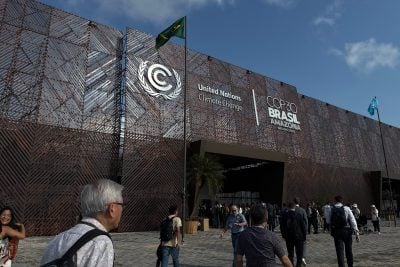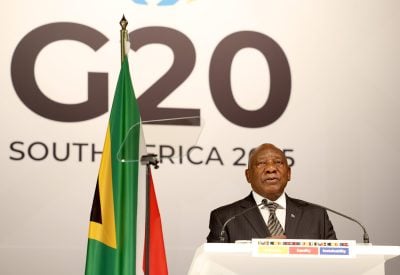Established in 2001 by the United Nations Human Settlements Programme (UN-Habitat), the first WUF was held in Nairobi, Kenya, but had not come back to Africa since.
From 4 to 8 November, representatives of international, regional and local governments, academics, businesspeople, community leaders and civil society convened in Egypt to examine one of the most pressing issues facing the world today as more people abandon rural areas to settle in the urban centres at a pace that requires big structural policies and planning. The World Bank estimates that by 2050 nearly seven out of ten people will live in cities.
With a city population of 10.2m and a Greater Cairo metropolitan area of over 22m, Cairo was an especially relevant destination for the conference’s return to Africa. The city has suffered with significant strains on urban services and planning, even while proving a dynamic business and tourism destination.
“We are glad to see it happening for the first time in a city the size of Cairo. That definitely gives us a very good opportunity to exchange and leverage the experience of the country, as well as to brainstorm to reach common solutions to the most demanding issues for urban development in Egypt, in Africa and the world,” Ahmed Rezk, UN-Habitat country director for Egypt, tells African Business.
“We are talking about global economic conditions that are not only influencing Egypt but also the region and the international setup, yet the country continues to position itself and give a very good example on how to deal with such issues and manage to achieve positive results on different fronts.”
Africa at the centre of discussions
The return also offered a unique opportunity to focus on the wider urbanisation challenges facing the continent, as well as giving governments a platform to highlight the lessons that can be learnt from the rapid urbanisation of Africa’s cities.
As a report from the OECD and the African Development Bank (AfDB) puts it: “Africa’s cities are the most rapidly growing cities in the world; they are the youngest and they are changing fast”.
Currently, less than half of Africa’s population (43%) live in cities according to United Nations data, making it more rural than other continents, but the continent is experiencing the quickest urbanisation process that the world has ever witnessed.
The OECD and AfDB report suggests that, since 1990, the number of cities in Africa has doubled in number, and their cumulative population has increased by 500m people. Currently, the world’s 10 fastest-growing cities are all in Africa, and the same report argues that the urban population will increase by around 900m people by 2050.
For researcher Shuaib Lwasa, professor of Urban Resilience and Global Development at the International Institute of Social Studies, urbanisation offers an opportunity to pursue innovative and inclusive solutions.
“For some it is the scale of how much needs to be built and built in a similar way as compared to the Western world. For some of us, it is building differently by combining good elements of large scale with bottom-up innovations that make cities more accommodative, inclusive and creating opportunities through the employability lens,” he tells African Business.
Taking residents into account
Despite the accelerated growth of Africa’s urban centres and economies, urban planning too rarely takes into account the views and interests of local communities.
“Due to power imbalances, urban planning and development is still dominated by the powerful financing institutions, having a grip on state agencies who have economised and commercialised ‘public’ services and infrastructure,” adds Lwasa.
“This is a serious problem because I think that Africa should pursue its unique urban form, order and management style. But when plans are a condition to access large scale investment infrastructure, then leaders and policymakers are drawn back to business as usual.”
African cities are estimated to require $20-25bn annual investment in basic infrastructure and $20bn for housing each year between now and 2050 to accommodate urban growth, says a report from Megatrends Afrika. The forum held panels on how this finance can be achieved – some could potentially be redirected from climate change mitigation and adaptation funds promised to the continent under the UN Conference of the Parties (COP) environmental process.
“Africa can mobilise its own financial and other resources to finance the large scale as well as small scale innovations,” Lwasa says, “but again, policy and leadership is not yet supportive of this… [it is] stuck.”
One of the direct consequences of this uncontrolled urbanisation, often heedless to the conditions of poorer Africans, is the creation of informal settlements.
“Africa’s rapid urbanisation outpaces housing supply, leading to informal settlements lacking secure tenure and basic services. These face inadequate water, sanitation, and waste management, necessitating urgent access to clean supplies and sanitation”, says Sheila Muganyi, a member of the Zimbabwe Homeless People’s Federation. Her organisation is part of the Slum Dwellers International network, with whom she came to this edition of the WUF to highlight the struggles of those left out by urban development projects.
She has led community research alongside the African Cities Research Consortium, and states that other pressing issues have to do with employment shortages, poor waste management and unpreparedness to some environmental challenges as climate change hits the continent more strongly than elsewhere.
“For urbanisation to be effective and equitable, genuinely participatory and systems-thinking approaches are essential,” she stresses.
Positive examples from Africa
Given that in sub-Saharan Africa, 70% of the population are under the age of 30, young people and their employment prospects will be central to Africa’s urbanisation story this century. “African youth are significantly engaged in shaping the future of their continent. The continent has the youngest population in the world and this makes its demographic a powerful force for change,” Muganyi says.
Young Africans are highly concerned about the environmental challenges that new cities face. A 2021 study from the World Economic Forum found that around 70% of Africa’s youth are concerned about climate change and 85% said their governments should be more proactive in addressing it.
Engaged youth-led groups are offering lessons for integrating environmental considerations into urban planning. “Sustainability is a key focus for continental groups and organisations shaping Africa’s urban future, reflecting the deep-rooted African values of harmony with nature and community wellbeing,” Muganyi says.
Prominent mayors at the conference discussed their experiences of tackling the environmental challenges facing their cities. Yvonne Aki-Sawyerr, mayor of Sierra Leone’s capital Freetown, said that she made fighting environmental degradation her mandate priority, launching a campaign that was able to plant over 600,000 trees.
For UN-Habitat’s Rezk, such lessons offer inspiring examples of how African cities can manage an often fraught process in their own way.
“Last September was the first Africa Urban Forum hosted in Addis Ababa. There, it was seen that African nations are advancing in a very positive way despite all the hard conditions and climate considerations that they cannot be blamed for,” he adds. “It is a very positive message that Africa and Egypt are giving the whole world.”
Want to continue reading? Subscribe today.
You've read all your free articles for this month! Subscribe now to enjoy full access to our content.
Digital Monthly
£8.00 / month
Receive full unlimited access to our articles, opinions, podcasts and more.
Digital Yearly
£70.00 / year
Our best value offer - save £26 and gain access to all of our digital content for an entire year!
 Sign in with Google
Sign in with Google 



